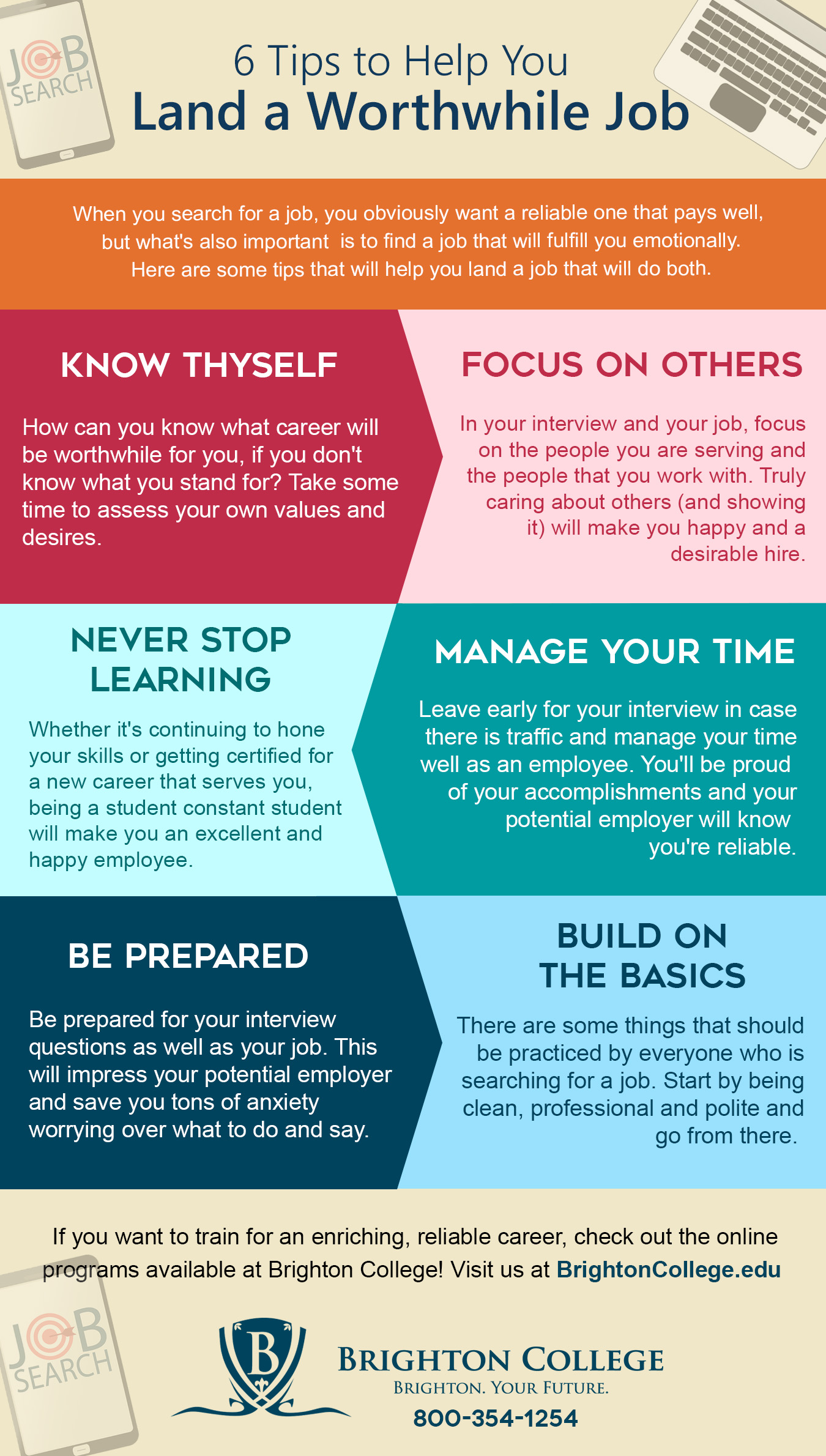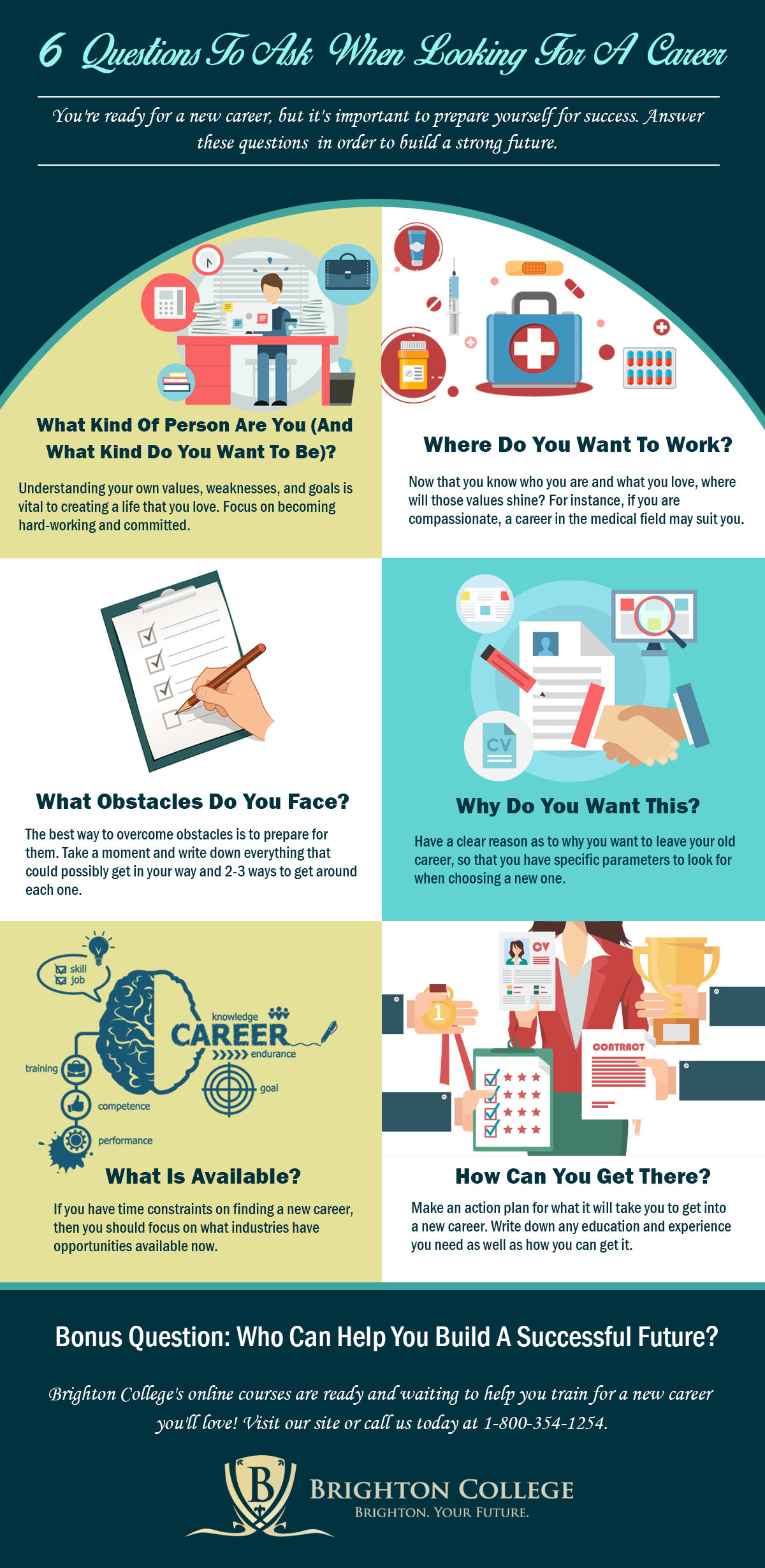

Author: Sam Fernandez
Study Tips for Solitary Learners
You may know that there are a number of different ways that people learn. Some prefer to listen to a lecture, while others would rather be involved in group discussions. Some students understand best when they are able to read the material. Others want to be more involved or hands-on in their pursuit of education. You may not know your precise learning style, but you probably have an idea of whether you are more of a solitary or a social person. If you identify more with the idea of being alone, you are probably a solitary, or intrapersonal, learner. Knowing your preferred learning style and the study techniques that work best for that style can help you to become a more successful and satisfied student. Read on to learn more about this preference and some study tips solitary learners.
About Solitary Learners
As someone who leans toward the solitary style, you are probably quite independent with a preference for having a great deal of quiet time for private introspection. You enjoy taking the opportunity to reflect on a topic and to analyze various aspects of it. This reflection likely applies to yourself, as well as outside situations and information. Solitary people tend to be quite aware of themselves and their inner workings. You may keep a diary or journal as a method of collecting your thoughts. Alone time means a great deal to you. If you have a problem, you retreat to a quiet space to reflect upon it by yourself, rather than hash it out with others. You are probably a planner, someone who likes to set goals and follow a map. It’s probably upsetting to you if you are feeling unsure about something in your life or the direction in which you should go.
Careers for Solitary Learners
Solitary learners tend to pursue certain careers. While this is not always the case, those with an intrapersonal style may be best suited for professions such as an author or researcher. Both of these are careers that thrive on the collection of and reflection on ideas. There are numerous jobs in the allied health field that may appeal to more solitary folks. Medical billers, coders and transcriptionists are all positions that work primarily behind the scenes to obtain information and input it into computer systems, then sending it along to the appropriate recipients like insurance companies, medical providers, laboratories and patients. Frequently, these types of professionals can even work from home. There are countless other kinds of careers that work well for those who enjoy a more introverted lifestyle such as archivists, court reporters and security guards.
Study Strategies
There are lots of ways you can personalize your approach to studying in order to suit your solitary tendencies. First, it makes sense that you’ll probably want to set up a nice, quiet place to serve as your basecamp. Being able to retreat to this secluded space on a regular basis will help to put you in the right frame of mind for focusing on your academic work. It will become routine, and your mind will soon adapt to entering “study mode” when you are in your study space. You’ll benefit from this time away from the hectic pace of daily life in order to focus, reflect and analyze the material in front of you. Journalism is a tactic that often works well for intrapersonal learners. If you enjoy writing, you may benefit from taking time to scribble down your thoughts regarding the topic you’re currently learning. This method will make the information more relatable to your personal life and knowledge of the world. When we can relate to a topic, we are better able to to understand and remember it.
Solitary learners tend to be organized individuals who enjoy planning, making lists and sticking to an agenda. Such personality traits can be used to your advantage when studying. At the beginning of each study session, take time to write down your goals and set deadlines for completing them. For example, you can determine how many pages or what portion of a chapter you’d like to complete, write down the ways in which you intend to review the material such as with flashcards or outlines and set a deadline for when you’ll finish the session. This kind of planning may help to motivate you and to increase your productivity.
These are just a few suggestions of study tips for solitary learners. You can incorporate them into your own preferred method in order to come up with a system that is uniquely successful for you.
Get in touch with a Brighton College representative to learn more about the kinds of careers that may appeal to your learning style. You may also call us at (602) 212-0501
6 Tips to Help you Land a Worthwhile Job
When you search to land a worthwhile job, you obviously want a reliable one that pays well, but what’s also important is to find a job that will fulfill you emotionally. Here are some tips that will help you land a job that will do both.
If you want to train for an enriching, reliable career, check out the online programs available at Brighton College! Fill our our form or get in touch with us today at 800-354-1254.
Embed This Image On Your Site (copy code below):
Study Tips for Social Learners

There are many different types of learners. Each one has their own dominant learning preference. Some people learn best through listening. Others have to work hands-on in order to figure something out. In addition, learning styles can be divided broadly into social learners and those who prefer a more solitary approach. Let’s take a look at the characteristics of social learners and discover some study strategies that can help you to become more successful if this is your preferred method.
Characteristics of Social Learners
As a social learner, you are probably a good communicator with others. Whether it’s spoken or in writing, people tend to receive your message well and may even come to you for advice. You thrive on inter-personal interactions and feel energized by them. You’re also a good listener who is able to reflect upon the words, feelings and motivations of others in order to best respond to them. Therefore, it makes sense that group learning works well for you. The opportunity to bounce ideas off of your classmates or the instructor is welcomed, and such collaboration helps you to form an opinion or understanding of the information at hand. In pursuits outside the classroom, you may find yourself on a sports team or involved with clubs in which you can pursue a particular interest with other like-minded people. You may be a social butterfly who seeks out parties or gatherings where you can meet and engage with others. Even if large crowds aren’t your thing, you may find yourself in the corner of the room chatting with one person or a small group. Some of your favorite games are multi-player ones, like board games or cards.
Common Careers
Your preference for social interaction may lead you to certain types of careers. Social people often work as teachers or counselors. Being able to teach, lead and help groups can be very satisfying for many with a strong interpersonal leaning. Coaching or training, whether it be in the fields of sports, industry or consulting, are others areas at which social learners themselves often excel. Sharing information with others is something that may provide you a sense of fulfillment. Social people are often good at sales because they are able to capitalize on their strength in interpersonal communication to inform buyers and to gain their trust. Those in human resources are usually strong in social skills. These professionals have to relate well to others and provide leadership, as well as maintain diplomacy handling negotiations or disputes among groups. One final example of a career in which many social learners excel is politics. Politicians must enjoy engaging with people and be sensitive to meeting the needs of their constituents.
Learning and Study Strategies
Because you thrive on interpersonal interaction, it makes sense that you would learn and study well in a group. If you are not able to meet with classmates in person due to geographical constraints, consider forming virtual study groups through Skype. When studying in groups, one particularly useful technique may be to teach each other. Each person can take a chapter or portion of the material and create a lesson to share with the group. This approach allows you each to become an expert on part of the material and allows interaction between members similar to that of a traditional learning environment. You will also want to be sure to take advantage of any collaborative activities your instructor sets up for the class online. A discussion forum can be just as satisfying and helpful as bouncing ideas off of people in the brick and mortar classroom.
Involve your friends or family in your educational pursuits. Talk to them about what you’re learning or ask them to quiz you before exams. This provides you the social interaction you crave and will make processing the information easier. A way to simulate an interpersonal interaction may be to look online for lectures or interviews regarding the topic you’re studying. Even when studying alone, there are some steps you can take to utilize your preferred strengths. Take time to plan your studying out and set a goal for the kind of information you want to take from the material You can do this in the form of an outline, checklist or graph if it helps. This technique actively involves you in the learning process. It also makes the information more personal and relatable.
Incorporating your strengths and preferences into your studying will aid in understanding, increase your retention of the material and help you to be a more successful, as well as satisfied, student. To learn more about the programs that may be a good fit for your style, contact a Brighton College representative.
Study Tips for Logical Learners

You may know that you learn best in a typical type of environment and respond well to certain teaching strategies. However, you may not realize that there are specific types of preferred learning styles and that knowing your preference can help you to determine the kinds of study skills that will be most effective for you. If you suspect that you’re a logical learner, it’s important that you understand the kinds of actions you should take in your time outside of the classroom in order to maximize your understanding and retention of the course material. These study tips for logical learners will help you to get the most out of your review sessions. A proactive approach to studying will increase your success and lessen your frustration.
About the Logical Learning Style
Sometimes the logical preference of learning is also referred to as the mathematical learning style. Learners with such a preference depend on their skills of logic to guide the intake of information. If you’re a logical learner, you probably excel at seeing connections and relationships between concepts. You may also be excellent at making various kinds of calculations. Using deductive reasoning to solve problems and find solutions is an enjoyable challenge for you. Games of strategy like chess or battle simulation games may be some of your favorite. Though this style may also be considered mathematical, that doesn’t mean that you are necessarily good at math, though many logical learners are due to a strong understanding of sequence, connections and patterns. You are also probably very investigative. You like to investigate further to find the reason or inner workings behind a concept.
Preferred Teaching Methods
While you have no control over the ways in which your professor chooses to structure lessons, you should be aware of the kinds of instruction that may be of most benefit to you. With this knowledge, you can choose to incorporate instances of such teaching into your study sessions and use these types of strategies to your advantage when teaching yourself new material. Logical learners thrive on organization and will appreciate a lesson that is well structured, going from one point logically into the next.
Lessons that utilize problem solving and allow students to develop conclusions based on the information provided will be fun and easy for you. This type of progression capitalizes on your strong deductive reasoning abilities. Graphs, charts and spredsheets are helpful, as well, because these tools visually demonstrate a pattern or calculation that makes information easy for you to follow. Information presented in a timeline will be easier for you to process than paragraphs in a textbook, and you should utilize any opportunity to analyze information such as statistical review or scientific data analysis.
Study Tips for Logical Learners
Based on the ways in which you like to take in and process information, there are some very valuable strategies you can put to use in your study sessions for better comprehension and retention. When it comes to truly understanding the material presented to you in your online lessons, you will have your best results by breaking large amounts of material down into segments and finding ways in which these segments relate. Look for patterns, associations and relationships between concepts in order to maximize understanding. You can even make the information personal to your own life, if possible. If you are able to see a pattern and compare it to personal experience in some way, you will begin to make sense of the information. Having a clear understanding of a concept also makes it more likely to remain in your memory.
If you don’t have visual representations available to you in your textbook to help you organize the information, you can always make your own. In fact, creating your own graphs, charts, outlines and maps is a tangible way to personalize the information, cementing it further into your memory. Lists are another good tool for learners who are logical because you can categorize information in this way. Hands-on activities are also appeal to your logical side. For example, building models can help you to make connections and see patterns in how something works. These don’t have to be actual models. They can be representations such as using poker chips for math problems.
Your preferred learning style can greatly affect your approach to college. Understanding your preferences and using them to your advantage will be of great benefit to your overall academic success and satisfaction.
Contact a Brighton College representative if you’d like to learn more about the types of programs that may be of interest to you.
6 Questions to Ask When Looking For a Career
6 Questions to Ask When Looking For a Career
You’re ready for a new career, but it’s important to prepare yourself for success. Answer these questions in order to build a strong future.
- What Kind of Person are you (and What Kind do you want to be)?
Understanding your own values, weaknesses, and goals is vital to creating a life that you love. Focus on becoming hard-working and committed.
- Where do you want to Work?
Now that you know who you are and what you love, where will those values shine? For instance, if you are compassionate, a career in the medical field may suit you.
- What Obstacles do you face?
The best way to overcome obstacles is to prepare for them. Take a moment and write down everything that could possibly get in your way and 2-3 ways to get around each one.
- Why do you want this?
Have a clear reason as to why you want to leave your old career, so that you have specific parameters to look for when choosing a new one.
- What is Available?
If you have time constraints on finding a new career, then you should focus on what industries have opportunities available now.
- How can you get there?
Make an action plan for what it will take you to get into a new career. Write down any education and experience you need as well as how you can get it.
Bonus Question: Who can help you build a Successful Future?
Brighton College online courses are ready and waiting to help you train for a new career you’ll love! Call us today at 1-800-354-1254
Embed This Image On Your Site (copy code below):
Study Tips for Verbal Learners
![]()
There are various theories on the ways in which people learn. While these theories may vary somewhat, they are similar in the sense that they put forth a belief that people have preferred methods of receiving and interpreting information. Learning styles can have a a great influence on your academic life, as well as in your career. You may not know for sure which type of learner you are, but if you tend to prefer to learn through spoken word, like reading aloud or through discussion, you are likely a verbal learner. Let’s take a look at the characteristics of such students, as well as some study tips for verbal learners.
About Verbal Learners
Verbal learners are also known as linguistic learners. They enjoy language, reading and writing. As the name implies, you are quite adept at expressing yourself verbally. All aspects of language are of interest to you. You probably often have little trouble remembering the information that you have read. Your vocabulary is vast, and you like the pursuit of stringing words together. You may frequently talk to yourself as you try to figure out a problem, and you may sometimes find yourself reading aloud in order to better understand the material. While you enjoy being in a classroom setting to participate in class discussions, online group activities can also stimulate your learning. Collaboration is helpful to you when forming a comprehension of new concepts.
Characteristics of a Verbal Learner
Along with reading information, verbal learners like to ask questions and participate in discussions. Doing so provides you with the chance to clarify and form the big picture with regard to the subject matter. You’re a student who receives knowledge well through verbal lecture, spoken instructions or repeating terms aloud. You probably don’t like quiet and may find yourself humming or tapping your pencil when there is complete silence. Along these lines, rhythm, music and other kinds of sounds appeal to you. Because talking and hearing are your dominant approaches to receiving and processing new concepts, you may have some difficulty with visual tools like diagrams, charts or maps. Spelling may not be your strong point, either. Though you love language, writing is something that could cause you some struggle. You’d much rather talk about a subject than write about it.
When it comes to academic learning, you likely prefer oral lectures, particularly ones in which the information is laid out in logical progression and the most important parts are repeated. When instructors make up songs or rhymes to help students remember something, you will likely recall it long into the future. Study groups are helpful for you. Fortunately, in an online learning environment, you can collaborate with classmates in forums and other methods of virtual group discussion. Mnemonic devices, or memory enhancing techniques in which representations such as acronyms and rhymes are used to remember concepts, are probably favorite teaching tools of yours used by instructors.
Study Tips for Verbal Learners
In order to get the most out of studying, you will want to capitalize on your strengths. For you, these strengths involve listening, speaking and collaborating with others. A good place to start would simply be to read your notes out loud. This method allows you to hear the material and to process it through your own verbalization. Do this several times in order to make the most effective use of the strategy, as repetition is a key to retention of information. In addition, reading your textbook after each lesson and as you study will also help you to learn and to remember.
Beyond these simple strategies, you can get a bit creative. Form study groups with your classmates in which you teach each other different chapters of the material. You can do this through Skype or other online resource. The ability to hear the lessons being taught to you will help you to process them. Verbal learners thrive through the interpersonal connections offered in group work, as well. If you don’t want to form a study group of classmates, perhaps you can teach the information to a friend or family member. That would also be beneficial. You could also find lectures of others discussing the material online if you’d like chances to listen to someone discussing the topic. Incorporate mnemonic devices like rhymes, acronyms, poems or other such verbal tools to help you remember certain phrases or concepts related to the assigned material.
Now that you have an understanding of your preferred learning style, you can use some of the study tips for verbal learners discussed to begin studying in a proactive way that works for you. Feel free to get creative and personalize your techniques.
Contact a Brighton College representative to learn about any of our programs or to find out how you can enroll.
The Top 7 Skills You Need to Land a Job
When the time has come to begin the job hunt, you will need to be prepared with certain skills and characteristics in order to be successful. Of course, there are skills employers look for in desirable employment candidates. Qualities such as critical thinking and leadership are always advantageous to job seekers and in demand by employers.
However, there is also a particular skill set you should have in order to conduct an effective job search that leads to interviews and, ultimately, a job that fulfills you. Possessing these abilities will be beneficial on the job and throughout your life, as well. Don’t worry if you don’t consider yourself to be strong in each of these areas. With practice and purposeful attention, you can begin to add them to your arsenal of knowledge. Keep reading to learn more about the top seven skills you need to land a job.
1. Communication
Clear communication is essential in every aspect of life. It is especially useful when job hunting because the main goal of this process is to sell yourself to potential employers. In order to receive an interview, you must communicate clearly in writing the skills, education and personal characteristics that make you a well-qualified candidate. Your cover letter and resume are the sales tools you will utilize in order to move on to the next step of a personal meeting. Hiring personnel spend very little time on each resume. You must be able to communicate in a concise, scannable manner your most relevant and impressive attributes.
It’s also important that you be proactive in your communication. The key to acquiring a job in today’s competitive market is to find ways to stand out. Personal communication with company representatives is a strategic way to make yourself known. Call companies to inquire about specific positions, and always follow up after you’ve submitted application materials.
2. Networking
Your strong communication skills also play a role in networking. This practice involves interaction with your current contacts, as well as reaching out to gain new ones, in order to increase your odds of landing a great job. Networking is far more advantageous to your job search than going it alone.
Tell everyone you know that you are currently looking for a new position. Let them know what kind of job you desire, the geographic area, the kind of company you wish to work for and your reasons for wanting to go in this career direction. This knowledge will allow those you know to be on the lookout for opportunities that might fit your needs. You never know who may be able to connect you to an opportunity such as a job opening, an industry introduction or resources in your city of interest.
3. Technology
Having an understanding of and feeling comfortable with the most common technology is necessary in today’s world. It can also advance your job search. Many jobs are posted online, and an increasing number of employers accept electronic application materials only. Thus, you will need to know your way around the internet, be able to use email and format documents. As noted earlier, social networking is also one of the best ways to expand your contacts. You can find industry experts and company representatives through services like Facebook, LinkedIn and online forums if you know how to navigate the sites. You should also be comfortable with presentation software and other commonly used computer programs, especially those relevant to your field.
4. Flexibility
The job search can be a very time consuming process. You’ll need to be flexible in order to incorporate it into your already busy life. If you’re currently working, going to school or managing family obligations, you’ll likely need to utilize some creative adaptability when it comes to giving adequate attention to finding a job. Making time to look for job openings, network, tailor resumes, send application materials, prepare for job interviews and attend those interviews is not an easy task. However, with an open mind, some organizational skills and focus, you’ll be better able to address issues as they arise.
5. Research
Preparing for job interviews is absolutely essential to performing well. You’ll want to practice some of the more typical questions interviewers ask so that you’ll be able to answer them confidently and with ease. If you don’t know a great deal about what to expect at an interview, this is where research comes in. You can go online to locate career resources to aid you in your interview preparation. Another often overlooked aspect of being ready for the interview is knowing about the company. Research is needed once again. Visit the company’s website, do a Google search and read articles by or about the organization’s leaders. This research will prepare you to talk about why you want to work for this particular business, and you’ll be able to ask relevant questions. Interviewers are sure to be impressed.
6. Self-Improvement
Self-improvement can be in relation to personal or professional matters. It means learning new information and methods to improve your life and make you more knowledgeable. There are so many ways you can seek self-improvement. Staying up to date on the latest trends within your field will make you more attractive to employers, as well as will likely help you to rise in the ranks once hired. Attend industry conferences and read journals to stay in the know. Join a group like Toastmasters if you want to become a better public speaker. There’s no end to the possibilities for learning more.
7. Persistence
Sometimes the job search can seem endless. It can be discouraging. Be persistent and keep taking steps from this list each day in order to keep working toward your goal. Knowing that you are being proactive in your search will help you to remain persistent. In order to get the job you want, you have to keep moving forward. Persistence may be the most important skill of all when it comes to conducting a fruitful job search.
These are the top seven skills you need to land a job. If you want to learn more about finding a career that works for you, contact us today at 1-800-354-1254.
6 Ways to Invest in Yourself
You’re worthwhile. The best way that you can honor that is not by treating yourself, but by investing in yourself, your future and the things that are important to you. Here are 6 ways that you can do that:
- Sleep
Snuggling in for 7-8 hours of sleep a night is the easiest way to invest in your physical, mental, and emotional well-being.
- Let Go of What Other People Think
Praise is fleeting, but negative opinions tend to linger and keep you from success. Invest in yourself, not in other people’s opinions of who you are.
- Get Moving
Spend just half an hour a day doing a physical activity like taking a walk. Bonus points if your activity takes you outside for some vitamin D.
- Invest in Your Career
Don’t waste your time at a terrible job. Train for a rewarding, worthwhile career that will offer you success and happiness in the future.
- Get Out of Toxic Places
If you have a situation such as a relationship, job, or other commitment that causes you more stress than joy, consider leaving.
- Stop Reading This and Get Started
The number one thing that will keep you from success is yourself. Your hesitations and excuses will get you nowhere. Move past them.
With this list, you’re ready to make some serious self-investments and with career training at Brighton College, you’ll be ready for that rewarding career. Do your future self a favor and call us!
Embed This Image On Your Site (copy code below):
Going Back to School as a Single Parent
Being a single parent comes with so many challenges. The weight of your responsibilities can be overwhelming, and it’s often difficult to find time to meet your own needs. However, it’s important to keep in mind that you are only human and that taking time for yourself can actually renew your spirit, providing you a more positive mindset to care for your children. Among the most stressful aspects of single parenting today is financial worry. You know that getting a degree or certificate can go far to improving your income, but you may not think you can fit one more thing on your already overflowing plate. You may be surprised to know that adult students are actually some of the most prepared due to the life experience they already hold. In addition, pursuing an education is something you can do for yourself, as well as your family. You’re likely to gain a great deal of self-fulfillment in learning new information, engaging online with fellow students and working toward a goal. Read on to learn how you can successfully balance going back to school as a single parent with your current responsibilities.
Gather a Support Network
While taking classes is a very fulfilling activity, there’s no denying that it can be stressful to find time for studying and meeting course requirements. That’s why it’s crucial that you identify and communicate with the people in your life who can most support you. It may be family, friends or even your children. Yes, your kids will need to know that they are expected to help you to do well in school, just like you help them. Kids can help by sitting down with you to do homework together, being patient while you are busy with classwork and pitching in around the house. They will feel a sense of pride in being able to assist you, in addition to receiving the message that education is important. Members of your adult support network can provide childcare during the most hectic times of the semester, give a listening ear and be understanding when you aren’t as available as you may have been in the past.
Get Serious About Time Management
Even with online classes that are flexible, you’ll need to block out some additional time in your schedule. A good practice is to actually write in your agenda or make a note in your online calendar the times you set aside for studying and class obligations. Doing this will make it a routine and help you, along with your family members, to know when it’s time to get to work on academics. This routine will become a habit that soon just becomes a normal, expected part of your everyday life.

Hone Your Communication Skills
Going back to school as a single parent will require you to communicate with the people in your life more than ever before. As mentioned, your kids and support network will need to understand why your education is so important to you and what you need from them in order to be successful. If you are working, you’ll also need to communicate regularly with your employer. Let them know that you are taking college classes, but that you have made arrangements to ensure your work performance doesn’t suffer. Once you demonstrate that this is true, your supervisor will likely be understanding should a situation arise in which you may need to adjust your schedule to meet academic needs. You’ll also want to always stay in communication with your instructors. They know their students have children and responsibilities. They will likely be open to extending an assignment deadline or accommodating you in some other way if a family issue comes up. However, you have to be sure to let them know as soon as possible.
Take Care of Yourself
While it’s so easy to neglect your needs when you’re a single parent, please don’t. You’ll need to be healthy, well-rested and emotionally strong in order to maintain your incredibly busy schedule. It definitely can be done, but not attending to your own needs will actually make a difficult job even more so. Get regular, adequate sleep. Eat healthy foods that nourish your body. Make time for fun. Being intentional in your efforts to care for yourself will pay off tremendously with a more positive outlook, clearer mind and renewed energy.
These are just a few ideas to help you see that going back to school as a single parent is possible when you have a plan. Contact us at Brighton College to learn ways our representatives, advisers and support staff can help to make your college experience happen.
Study Tips for Auditory Learners

Online courses offer a great deal of flexibility and numerous benefits for today’s busy students. Classes fit your schedule and allow you to complete work at times that are convenient for you. There’s no need to commute to campus, and you don’t have to worry about juggling work or childcare schedules to accommodate class. It is important that you understand a bit about learning online in order to increase your academic satisfaction and success. Most students have a dominant learning preference when it comes to the ways in which they best understand and process information. These preferences are known as learning styles. Knowing a bit about your particular learning style can make a big difference in how well you understand and retain information. Auditory learners understand and remember best through listening. Fortunately, most online coursework usually has some type of auditory component to support students such as yourself. There are also lots of ways for you to incorporate auditory strategies into your studying. Follow these study tips if you are an auditory learner.
Take Advantage of Auditory Tools
If your instructor offers any listening resources to supplement online coursework, be sure to take advantage of it. Things like podcasts, PowerPoint presentations with narration, video lessons or any other type of media you can listen to will surely be of benefit to an auditory learner such as yourself. You can even record yourself reading your notes or textbook and listening to it later as a study tool.
Listen to Music
Music playing in the background can be a distraction for some people. However, it is often soothing and even necessary for students who are particularly responsive to sounds. If you like to hear music when you study, use that to your advantage. Choose songs that motivate or energize you. Go with tunes that put you in a positive mindset. Do be aware of any kinds of music that can be jarring to the senses or distracting.
Form a Group
If possible, get a group of your classmates together to study. There may be a group component to your course, which is great because you can bounce ideas off of your peers and have discussions about the material with regard to real-world implications. Having a small study group outside of class over Skype or other form of interactive means will allow you to hear each other’s take on the information. In fact, a great strategy is for group members to take turns teaching a portion of the material to the others so everyone can hear the concepts spoken out loud, maximizing your auditory learning style.
Talk to Yourself
Sure, your family or roommates may think you’re crazy, but that’s okay because you’ll be learning effectively. You can always read your textbook aloud in order to hear the words and better remember them. Another option is to have a friend read your study guide to you and have you answer the questions. You could also make flashcards to quiz yourself with or to review with a partner.
Get Creative
You can be as creative and out-of-the-box as you want to be with your study routine. People who learn by listening frequently remember facts well when they utilize a mnemonic device to jog their memory. Mnemonics are sentences to which the first letter of each word corresponds with the first letter of a word you are trying to remember. For example, math students often learn the mnemonic Please Excuse My Dear Aunt Sally to help them remember the order of operations, or which parts of a math problem to computer first. By the way, the order of operations goes Parentheses, Exponents, Multiply, Divide, Add and Subtract. There are lots of other ways to be creative with your memory tools such as making up jingles, writing rhymes or stories to correspond with what you’re learning.
Make It Personal
Sometimes what you’re learning in class can seem rather abstract, making it difficult to relate to or remember. Consider ways in which you can make the subject you’re studying relate to your own life experience. You may even wish to find someone to talk to who can relate to the information on a personal level. Making it personal helps to clarify concepts. If you can’t find a way to do this, consider making an appointment to discuss the topic with your professor by phone. Hashing a topic out verbally and hearing another’s take on the information is a great way to understand it.
These study tips should give you a good start on finding ways to meet your learning style needs. You’re always encouraged to contact a Brighton College representative to learn more about our programs and the best available options for you.












